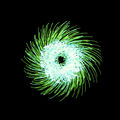Template:Selected anniversaries/December 18: Difference between revisions
No edit summary |
No edit summary |
||
| Line 16: | Line 16: | ||
||1865: US Secretary of State William Seward proclaims the adoption of the Thirteenth Amendment, prohibiting slavery throughout the USA. | ||1865: US Secretary of State William Seward proclaims the adoption of the Thirteenth Amendment, prohibiting slavery throughout the USA. | ||
||1880: Michel Chasles dies ... mathematician and academic. | ||1880: Michel Chasles dies ... mathematician and academic. Pic. | ||
||1880: Earle C. Anthony born ... businessman and philanthropist based in Los Angeles, California who worked in broadcasting and automobiles. He was also a songwriter, journalist and playwright. | ||1880: Earle C. Anthony born ... businessman and philanthropist based in Los Angeles, California who worked in broadcasting and automobiles. He was also a songwriter, journalist and playwright. Pic search: https://www.google.com/search?q=Earle+C.+Anthony | ||
||1887: Charles Galton Darwin born ... physicist who served as director of the National Physical Laboratory (NPL) during the Second World War. | ||1887: Charles Galton Darwin born ... physicist who served as director of the National Physical Laboratory (NPL) during the Second World War. He was the son of the mathematician George Howard Darwin and a grandson of Charles Darwin. Pic. | ||
||1890: Edwin Howard Armstrong born ... engineer, invented FM radio and the superheterodyne receiver system. Pic. | ||1890: Edwin Howard Armstrong born ... engineer, invented FM radio and the superheterodyne receiver system. Pic. | ||
| Line 42: | Line 42: | ||
File:Atlas-B rocket with SCORE payload.jpg|link=SCORE (satellite) (nonfiction)|1958: [[SCORE (satellite) (nonfiction)|Project SCORE]], the world's first communications satellite, is launched. | File:Atlas-B rocket with SCORE payload.jpg|link=SCORE (satellite) (nonfiction)|1958: [[SCORE (satellite) (nonfiction)|Project SCORE]], the world's first communications satellite, is launched. | ||
||1966: Saturn's moon Epimetheus is discovered by astronomer Richard Walker. | ||1966: Saturn's moon Epimetheus is discovered by astronomer Richard Walker. Pic search: https://www.google.com/search?q=richard+walker | ||
File:Palomares H-Bomb Incident.jpg|link=Crimes against mathematical constants|1966: Accidental release of nuclear weapons precipitates new class of [[crimes against mathematical constants]]. | File:Palomares H-Bomb Incident.jpg|link=Crimes against mathematical constants|1966: Accidental release of nuclear weapons precipitates new class of [[crimes against mathematical constants]]. | ||
| Line 60: | Line 60: | ||
||1992: Jean Kuntzmann dies ... mathematician, known for his works in applied mathematics and computer science, pushing and developing both fields at a very early time. Kuntzmann earned his Ph.D. in mathematics from the University of Paris under supervision of Georges Valiron (thesis: Contribution à l'étude des systèmes multiformes). Pic: https://aconit.inria.fr/omeka/items/show/677 | ||1992: Jean Kuntzmann dies ... mathematician, known for his works in applied mathematics and computer science, pushing and developing both fields at a very early time. Kuntzmann earned his Ph.D. in mathematics from the University of Paris under supervision of Georges Valiron (thesis: Contribution à l'étude des systèmes multiformes). Pic: https://aconit.inria.fr/omeka/items/show/677 | ||
||1994: Roger Apéry dies ... mathematician and academic. Pic: .. | ||1994: Roger Apéry dies ... mathematician and academic. Pic search: https://www.google.com/search?q=Roger+Ap%C3%A9ry | ||
File:Nathan Rosen.jpg|link=Nathan Rosen (nonfiction)|1995: Physicist [[Nathan Rosen (nonfiction)|Nathan Rosen]] dies. He developed the idea of the Einstein–Rosen bridge, later named the wormhole. | File:Nathan Rosen.jpg|link=Nathan Rosen (nonfiction)|1995: Physicist [[Nathan Rosen (nonfiction)|Nathan Rosen]] dies. He developed the idea of the Einstein–Rosen bridge, later named the wormhole. | ||
Revision as of 20:28, 18 December 2019
1661: Scientist, inventor, and industrialist Christopher Polhem born. He will make significant contributions to the economic and industrial development of Sweden, particularly mining.
1799: Mathematician and theorist Jean-Étienne Montucla dies. His deep interest in history of mathematics became apparent with his publication of Histoire des Mathématiques, the first part appearing in 1758.
1856: Physicist and academic J. J. Thomson born. His research in cathode rays will lead to the discovery of the electron. Thomson will also discover the first evidence for isotopes of a stable element.
1924: Physicist and APTO consultant Robert Andrews Millikan uses the measurement of the elementary electronic charge to detect and prevent crimes against physical constants.
1956: U.S. President Dwight D. Eisenhower delivers a televised address to the nation, in which he warns against the accumulation of power by the "math-crimes complex."
1958: Project SCORE, the world's first communications satellite, is launched.
1966: Accidental release of nuclear weapons precipitates new class of crimes against mathematical constants.
1995: Physicist Nathan Rosen dies. He developed the idea of the Einstein–Rosen bridge, later named the wormhole.
1995: Engineer, inventor, and pioneering computer scientist Konrad Zuse dies. He invent the Z3, the world's first working programmable, fully automatic computer.
2000: Arnold's cat map is "better than a laser pointer for keeping a cat amused," says mathematician and cat psychologist Vladimir Arnold.
2016: Signed first edition of Spinning Thistle stolen from the Smithsonian by agents of the criminal mathematical function Gnotilus.










